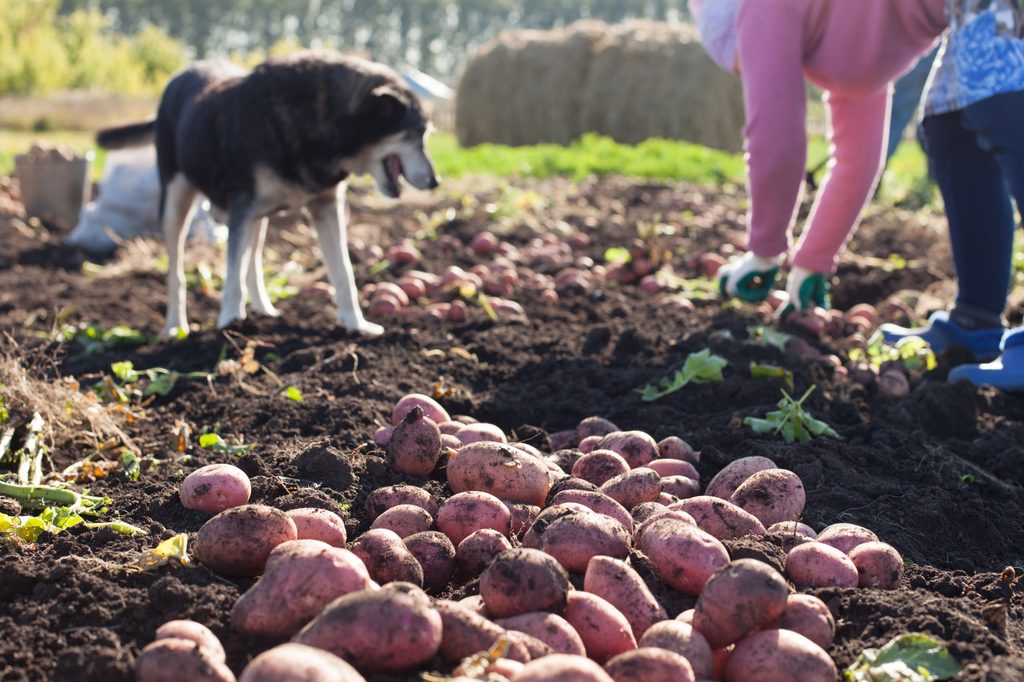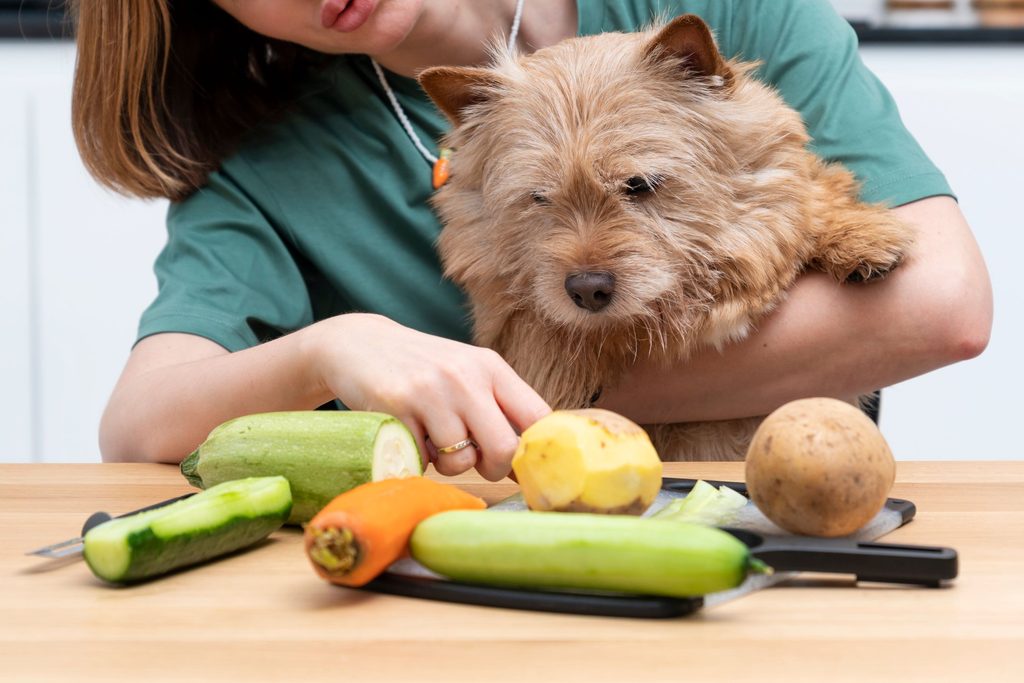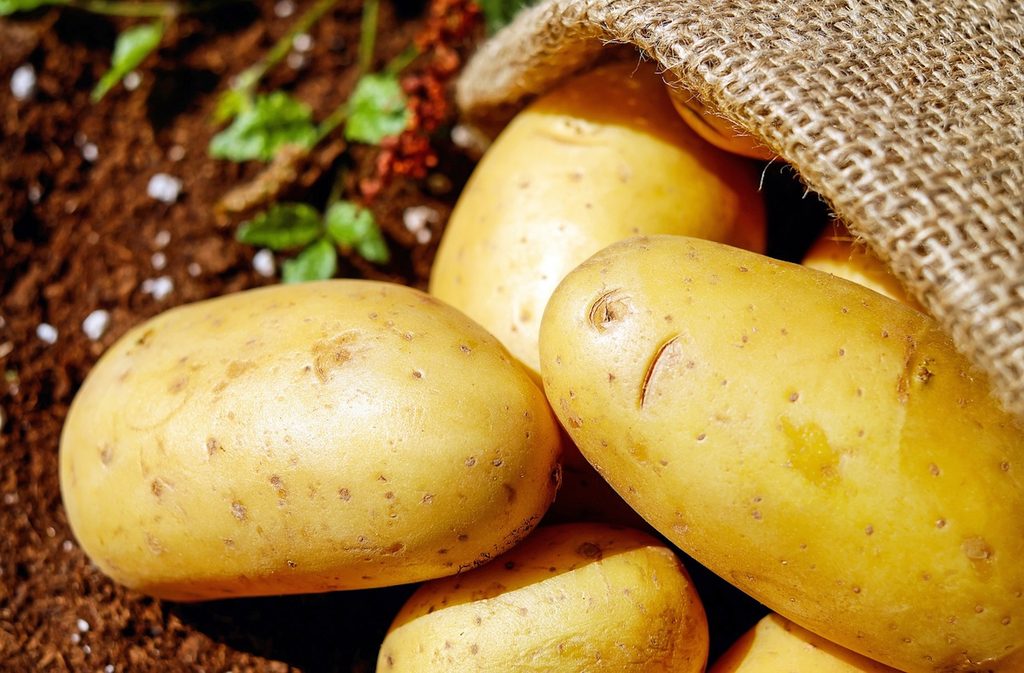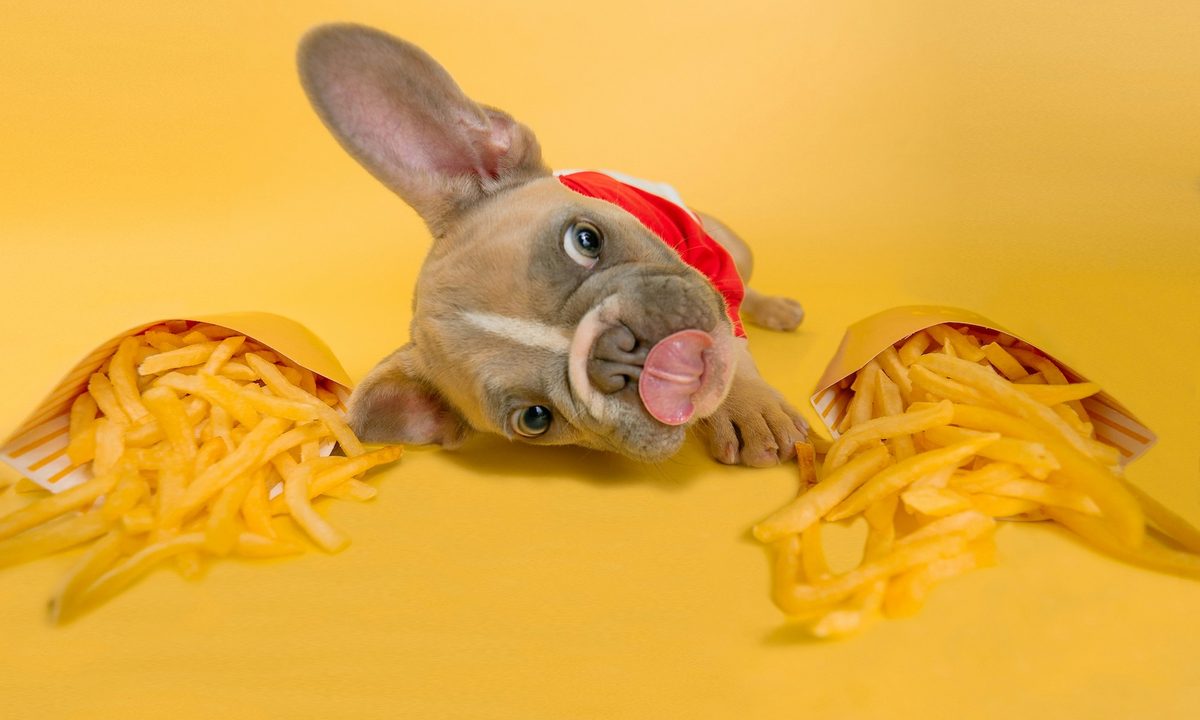There are few foods as diverse and delicious as the humble potato. This starchy vegetable can be mashed, baked, or even fried, and it complements just about any flavor combination. Whether you like to eat them as hash browns during breakfast or as a hearty soup for dinner, there’s no wrong way to prepare spuds of any size.
But can dogs eat potatoes? It’s only normal to want to share a bite of your food with your begging buddy, but it’s important to double-check that whatever’s on your plate is safe for dogs to eat, too. The last thing you want is to make your dog sick.
Luckily, potatoes aren’t likely to cause any kind of digestive upset as long as you follow a few rules. Here’s what you need to know about dogs and potatoes.
Can dogs eat potatoes?

Long story short: yes! Cooked potatoes are safe for dogs to eat under the right circumstances, though it’s important to only feed your dog plain potatoes in order to keep it that way. We’ll dive deeper into the best ways to prepare dog-safe potatoes, so all that’s left for you to worry about is what other dog-safe people food to pair them with!
Can dogs eat the potato plant?
Potatoes are easy to grow in the garden, but it’s important to supervise your four-legged friend if they like to be your gardening assistant. That’s because potatoes are a member of the nightshade family, and they contain two chemicals — solanine and chaconine — that can be toxic to dogs if consumed in large amounts.
“Potato plants, green potatoes, and sprouts contain solanine,” explained Taste of the Wild, “and raw potatoes and skins contain chaconine.” This is why it’s important to supervise your pup in the garden and to cook potatoes thoroughly before offering your hungry dog a bite. If you suspect that your dog has eaten raw potatoes or any pieces of a potato plant, give your veterinarian a call to decide your best course of action.
Benefits of potatoes for dogs

When prepared safely, potatoes do more than taste delicious. Their starchy fiber is a great source of carbohydrates for both you and your dog, and they’re even used in some commercial dog foods as the main source of carbs. This macronutrient helps give your dog the energy they use every day, and it can also support optimal digestive health, so it’s an important piece of a balanced canine diet.
Spuds are also chock full of vitamin C, potassium, and some fiber. Depending on the variety of potatoes you’re working with, you may be getting additional nutrients like vitamin A and antioxidants, too. Some say that the darker the potato, the more vitamins and antioxidants it has!
Rules for feeding dogs potatoes

When you’re sharing potatoes with your dog, you want to make sure that you follow a few basic rules. This will keep your dog safe and prevent any digestive problems, and it won’t add any extra prep time to your schedule.
Potatoes must be peeled
Although potato skins contain larger amounts of fiber than the potato itself, they can’t be fed to dogs since they contain chaconine. If you’re making baked potatoes or if you prefer to keep the peel on when you make French fries, just be extra sure that any pieces your dog gets are free of any traces of the peel. Better yet, prepare a piece of potato for your dog separately from your own food.
Potatoes must be cooked
Because raw potatoes also contain chaconine, it’s important to cook them all the way through before giving them to your begging dog. How you cook potatoes is up to you, but avoid feeding your dog anything that’s been fried. While the oils are not healthy for them, a few bites aren’t likely to cause much of a problem.
The safest ways to cook potatoes for dogs is boiling or roasting without any butter or oils. From there, you can prepare the cooked taters any way your dog likes. Mashed potatoes can be a great treat for senior dogs that have lost their teeth, while diced potatoes can take the place of your pup’s regular dog treats for an evening. You can even use potatoes in your favorite homemade dog food recipe!
Potatoes must be plain
As mentioned above, potatoes must be plain when fed to your dog. That means you can’t add oils or butter when cooking, and you can’t add any herbs, salt, or your other favorite toppings. It’s even advised to skip the milk in the mashed potatoes! While a little milk isn’t likely to do much harm, it can cause stomach upset in dogs that are sensitive to dairy.
All in all, potatoes are fine to share with your pup as an occasional treat. As a general rule, treats should comprise no more than 10% of your dog’s daily nutritional intake, but that 10% can be the highlight of your dog’s day.




